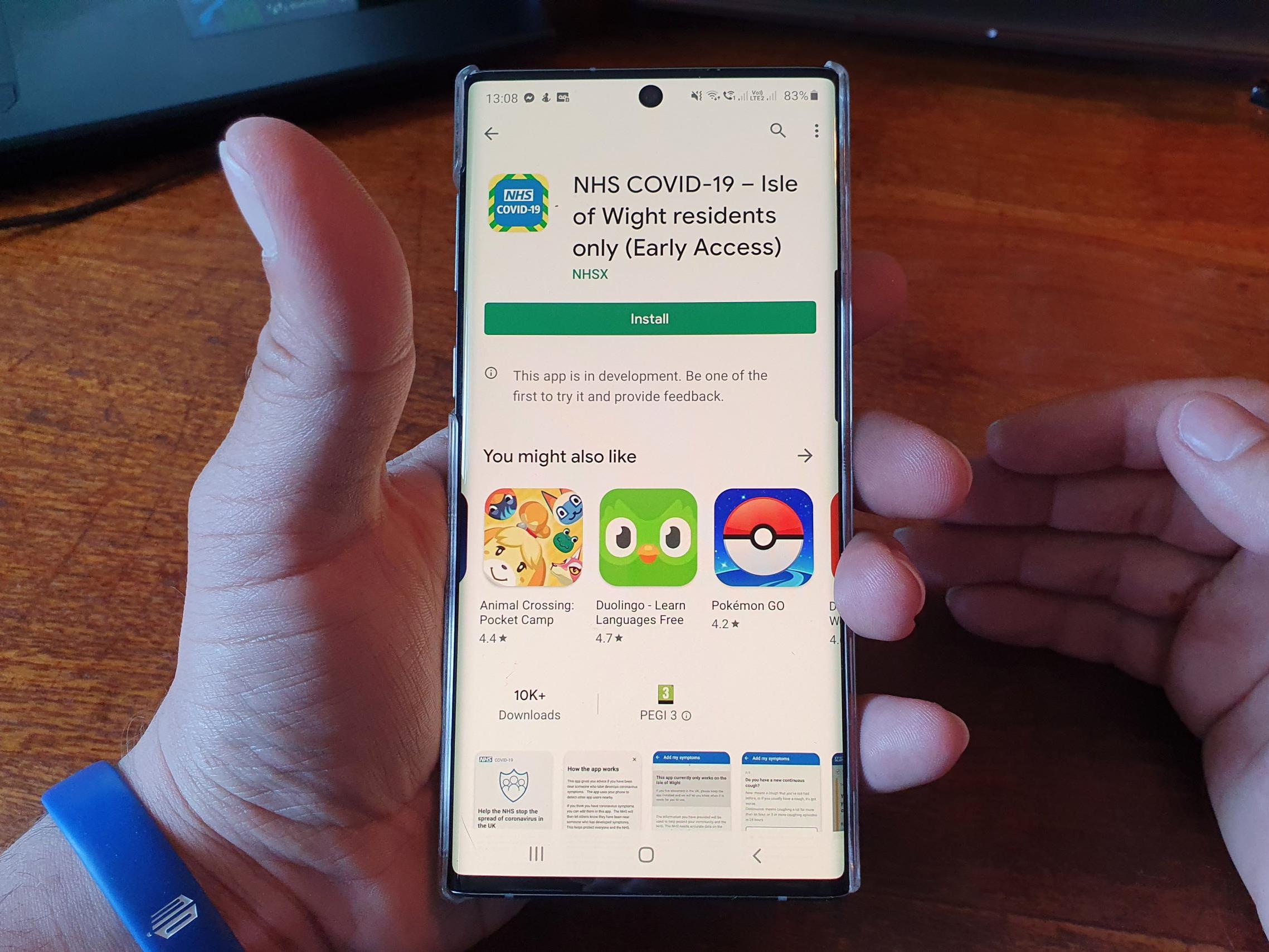Coronavirus: NHS test and trace unable to reach almost 30 per cent of people with Covid-19
Figures ‘surprising and worrying’, says leading epidemiologist – as more than 2,000 people testing positive last week go uncontacted

Your support helps us to tell the story
From reproductive rights to climate change to Big Tech, The Independent is on the ground when the story is developing. Whether it's investigating the financials of Elon Musk's pro-Trump PAC or producing our latest documentary, 'The A Word', which shines a light on the American women fighting for reproductive rights, we know how important it is to parse out the facts from the messaging.
At such a critical moment in US history, we need reporters on the ground. Your donation allows us to keep sending journalists to speak to both sides of the story.
The Independent is trusted by Americans across the entire political spectrum. And unlike many other quality news outlets, we choose not to lock Americans out of our reporting and analysis with paywalls. We believe quality journalism should be available to everyone, paid for by those who can afford it.
Your support makes all the difference.The government’s contact-tracing programme failed to reach almost 30 per cent of people who tested positive for the coronavirus in England last week, the latest figures show.
Only 70 per cent of the 6,923 people who tested positive for Covid-19 during the period were reached by NHS Test and Trace staff, according to the Department of Health and Social Care.
This means that 2,054 people with the virus – and potentially thousands of their close contacts – could not be traced by the new system.
The figures also show that of the almost 21,000 people who have been referred to the tracing programme since it began at the end of May, 73 per cent were reached and asked to provide details of contacts.
The fact that one in four people with the virus had not been reached since the launch was “surprising and worrying”, said Keith Neal, emeritus professor of the epidemiology of infectious diseases at the University of Nottingham.
The number of people not fully traced by the system includes those whom staff were unable to contact because there had been no response to text, email and call reminders, and those who were reached but declined to give details of close contacts.
Prof Neal said: “There are number of issues currently with the system – these can only be sorted by members of the public, as it requires individuals to take the appropriate actions to reduce spread.”
He added: “The number of people who are thought to have Covid-19 is much higher than the numbers testing positive – more people need to come forward for testing that is now much easier to access.”
Those running the test and trace service argued that it was still early days in its operation, and required continued co-operation from the public to help get to grips with the pandemic.
“In just three weeks, NHS Test and Trace has already reached more than 100,000 people who may have otherwise unknowingly spread the virus,” said Baroness Dido Harding, who is in charge of the system.

“It will take all of us working together to stop the spread of the virus in our communities and that will continue to be true as the country starts to open up again.”
Since the programme’s launch on 28 May, it has reached 113,925 close contacts of the 21,105 people who have tested positive for the coronavirus, said the Department of Health.
The test and trace data released on Thursday still does not include the total turnaround time for a person with suspected symptoms to get tested and then be contacted by tracers.
The government’s Scientific Advisory Group for Emergencies (Sage) has said this needs to be done within 48 hours of symptoms appearing, allowing laboratories to complete tests and report results within 24 hours so contact tracers can speak to those infected and receive details of contacts.
Baroness Harding said work was ongoing to produce this data in the coming weeks.
On Wednesday, Boris Johnson insisted that a “cluster-busting operation” would quickly tackle localised coronavirus outbreaks, and defended the test and trace system, even though the promised app now appears a distant prospect.
The Labour leader, Sir Keir Starmer, confronted the prime minister over his claim that no country has a working contact-tracing app – pointing out that Germany’s equivalent had been downloaded 12 million times after a successful launch.
The health secretary, Matt Hancock, refused to give a date on when the contact-tracing app would be made available, but said the government is “going to make it work”.
Speaking to ITV’s Robert Peston, Mr Hancock said people will have to “self-declare” to the NHS if their phone informs them they have been close to someone who has tested positive.
Join our commenting forum
Join thought-provoking conversations, follow other Independent readers and see their replies
Comments